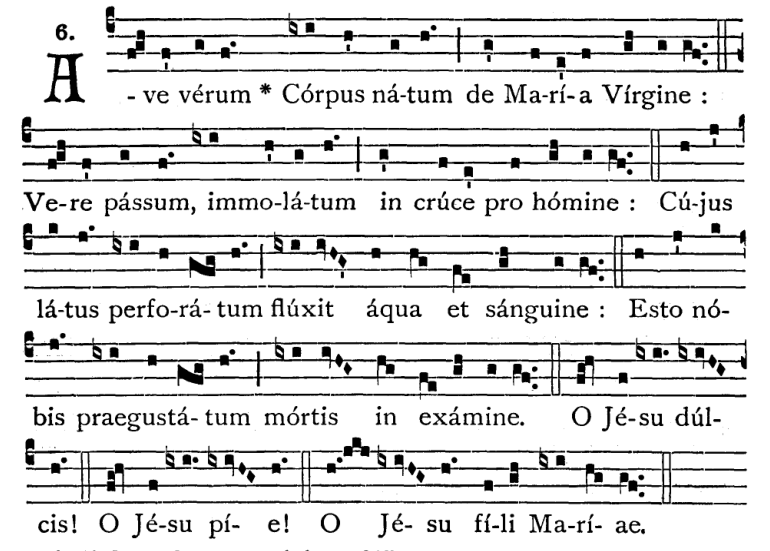That's the first piece on this video, which I believe is sung by the
Chœur Grégorien de Paris. (The video itself seems to be a visual tour
of the St. Trophime Cathedral in Arles, France;
the chant seems unrelated, to me, possibly used as background music
simply for its beauty. Well, enjoy it! There are several different
pieces on this video - and the church is indeed splendid.):
Here's an mp3 of Timete Dominum from ChristusRex,org, sung by the Benedictines in São Paulo, Brazil. And somebody's put the same audio file into a video:
The text, taken from Psalm (33/)34, vv. (10-11/)9-10, from CPDL:
And here is the full chant score:
This text has been set by a number of composers. Here's one setting by Ascanio Trombetti (1544-1590):
Very nice! The YouTube page has more about the performance:
The All Saints' Day Collect is this one:
Here are mp3 files for all the propers on the day, from ChristusRex.org:
And here are posts about these on Chantblog:
Here's an interesting icon appropriate for this day. It's described this way: "Icon of Chetyi-Minei (calendar of saints). In the very center is the Resurrection of Christ surrounded by scenes from Holy Week and the feasts of the Paschal cycle. Around them are twelve groupings of saints: one for each month of the calendar year. In the border are icons of the Theotokos (Mother of God), each of which has a feast day during the liturgical year."
Here's an mp3 of Timete Dominum from ChristusRex,org, sung by the Benedictines in São Paulo, Brazil. And somebody's put the same audio file into a video:
The text, taken from Psalm (33/)34, vv. (10-11/)9-10, from CPDL:
Timete Dominum omnes sancti ejus: quoniam nihil deest timentibus eum.
Inquirentes autem Dominum, non deficient omni bono. Alleluia.
Fear the Lord, all ye his saints: for there is no want to them that fear him:
They that seek the Lord shall not be deprived of any good. Alleluia.
And here is the full chant score:
This text has been set by a number of composers. Here's one setting by Ascanio Trombetti (1544-1590):
Very nice! The YouTube page has more about the performance:
Live performance at De Duif, Amsterdam - December 21, 2010
Project "Sacrae Symphoniae" - Vocal and instrumental Renaissance music from Venice
Harma Everts & Klaartje van Veldhoven, sopranos
Santiago Cumplido del Castillo, countertenor
Bram Verheijen & Esteban Manzano, tenors
Eiji Miura, bass
The Royal Wind Music directed by Paul Leenhouts
Petri Arvo, Alana Blackburn, Stephanie Brandt, Ruth Dyson, Eva Gemeinhardt, Arwieke Glas, Hester Groenleer, Karin Hageneder, Kyuri Kim, Marco Paulo Alves Magalhâes, María Martínez Ayerza, Filipa Margarida da Silveira Pereira, Anna Stegmann: renaissance recorders
www.royalwindmusic.org
The All Saints' Day Collect is this one:
Almighty God, you have knit together your elect in one communion and fellowship in the mystical body of your Son Christ our Lord: Give us grace so to follow your blessed saints in all virtuous and godly living, that we may come to those ineffable joys that you have prepared for those who truly love you; through Jesus Christ our Lord, who with you and the Holy Spirit lives and reigns, one God, in glory everlasting. Amen.Hatchett's Commentary on the American Prayer Book says this about the collect:
This collect was composed for the 1549 Book. The 1662 revision substituted "blessed" for "holy," and "in all virtuous and godly living" for "in all virtues, and godly living." The present revision replaces "unspeakable" with "ineffable" since "unspeakable" has so changed and negative a connotation in modern English. The collect expresses in an admirable way Saint Paul's conception of the church as the Body of Christ.
Here are mp3 files for all the propers on the day, from ChristusRex.org:
Die 1 novembris Introitus: Ps. 32 Gaudeamus... Sanctorum omnium (3m09.8s - 2969 kb) score
Omnium Sanctorum
Graduale: Ps. 33, 10. V. 11b Timete Dominum (2m33.1s - 2395 kb) score
Alleluia: Mt. 11, 28 Venite ad me (3m34.5s - 3355 kb) score
Offertorium: Sap. 3, 1.2.3 Iustorum animæ (2m25.8s - 2281 kb) score
Communio: Mt. 5, 8.9.10 Beati mundo corde (1m29.8s - 1408 kb) score
And here are posts about these on Chantblog:
- The Introit for the Solemnity of All Saints: Gaudeamus Omnes ("Let us all rejoice")
- The Gradual for the Solemnity of All Saints: Timete Dominum omnes sancti ejus ("Fear the Lord, all ye his saints").
- The Communion Song for the Solemnity of All Saints: Beati Mundo Corde ("Blessed are the pure in heart")
- The Office for November 1: The Feast of All Saints, and All Saints' Day: The Complete Office
Here's an interesting icon appropriate for this day. It's described this way: "Icon of Chetyi-Minei (calendar of saints). In the very center is the Resurrection of Christ surrounded by scenes from Holy Week and the feasts of the Paschal cycle. Around them are twelve groupings of saints: one for each month of the calendar year. In the border are icons of the Theotokos (Mother of God), each of which has a feast day during the liturgical year."


